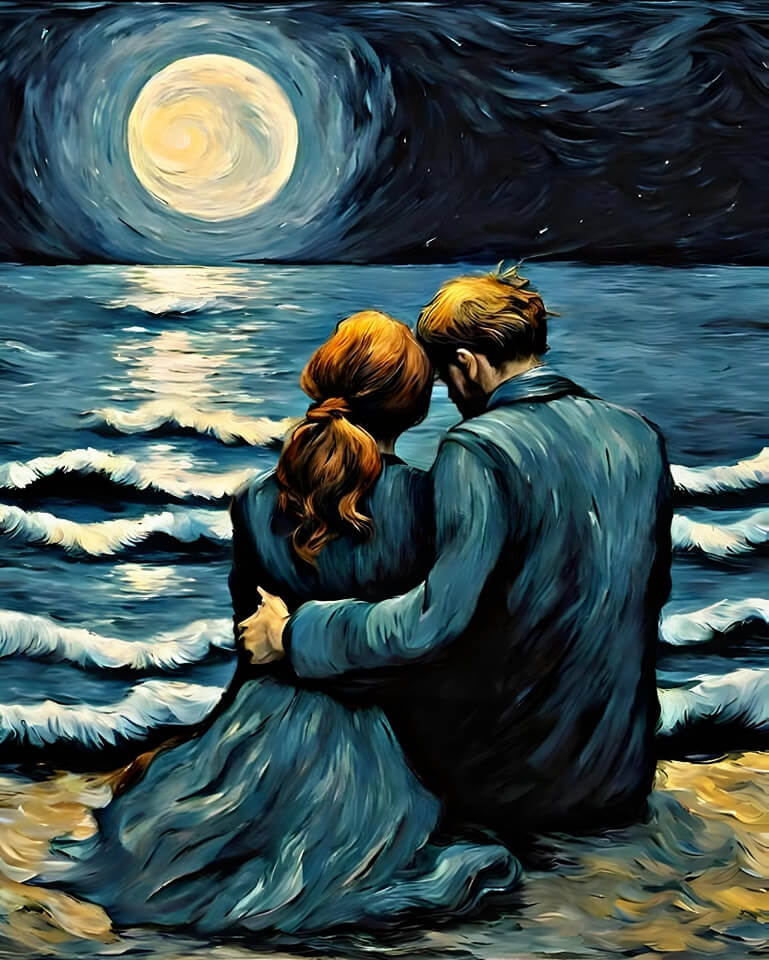Picture this: you lock eyes with someone across the room, and in that moment, there’s a spark—an undeniable pull that feels like destiny. It’s thrilling, almost magical. But what if that magnetic attraction wasn’t about fate but rather a reflection of your inner world?

Psychologists like Carl Jung and Sigmund Freud believe that attraction is rarely random. Instead, it’s shaped by an internal “imago,” a subconscious image of an ideal partner formed by our early experiences with caregivers. These early relationships—whether nurturing or challenging—leave an imprint, guiding us toward people who reflect our unmet needs or unresolved wounds.
Understanding the stages of relationships helps us see how attraction evolves into deeper connection—or, sometimes, struggle. Here are the three key stages that every relationship moves through on the journey to conscious love.
1. The Honeymoon Stage: Chemistry Takes the Lead
In the beginning, love feels magical. Your body is flooded with dopamine, norepinephrine, and other feel-good chemicals, leaving you exhilarated and infatuated. Everything about your partner seems perfect, as if they were made just for you.
But beneath the surface, this magnetic pull often reflects subconscious patterns. You may be drawn to someone who mirrors qualities—good or bad—that feel familiar based on your early experiences. For example, if you grew up seeking approval, you might be attracted to someone who feels slightly out of reach, subconsciously hoping to earn their love.
This stage is nature’s way of bonding us to another person, but the chemistry high can only carry a relationship so far. Eventually, the euphoria fades, and you enter the next stage.
2. The Power Struggle: Where Growth Begins
As the honeymoon glow fades, reality sets in. Differences and imperfections become more apparent, and the relationship begins to feel less effortless. This stage, often called the power struggle, is where many relationships face their greatest challenges.
Common patterns during this phase include:
- One partner feeling neglected or unloved and withdrawing emotionally.
- The other partner feeling rejected and reacting with frustration or neediness.
- Recurring arguments, misunderstandings, and emotional distance.
- Deep-seated fears of abandonment, rejection, or inadequacy resurfacing, fueling conflict.
It’s easy to feel stuck or assign blame during this phase, but the power struggle is an opportunity—not a dead end. This stage challenges you to grow, both individually and as a couple. It invites you to confront your fears, communicate openly, and move beyond old patterns. Those who do can transition to the next stage.
3. Conscious Love: The Deepest Connection
The third stage marks a shift from infatuation and struggle to a deeper, more intentional form of love. Conscious love is built on mutual effort, trust, and emotional maturity.
In this stage:
- Both partners take responsibility for their own happiness rather than relying on the other to fill emotional voids.
- Communication becomes open, empathetic, and honest, allowing for vulnerability and connection.
- The focus shifts from control or blame to partnership, where kindness and support are prioritized.
- Emotional and physical intimacy deepen, creating a safe and nurturing space for growth.
Conscious love isn’t about perfection; it’s about growth. Couples in this stage learn to navigate challenges with patience and understanding, building resilience and harmony along the way.
What Attraction Really Means
The magnetic pull you feel toward someone isn’t just about them—it’s also about you. Often, the people we’re drawn to mirror our inner needs, wounds, or desires. Recognizing this allows you to approach relationships with greater awareness and curiosity.
Attraction may start the relationship, but it’s not what sustains it. True love requires effort, self-awareness, and a willingness to grow—both individually and together.
So, the next time you feel that spark, remember: it’s not just about the other person. It’s a reflection of your own inner journey. Use that spark as an opportunity to explore, grow, and create a connection that goes far beyond initial chemistry.
True love isn’t something you find. It’s something you create—one moment, one challenge, and one choice at a time.


0 Comments